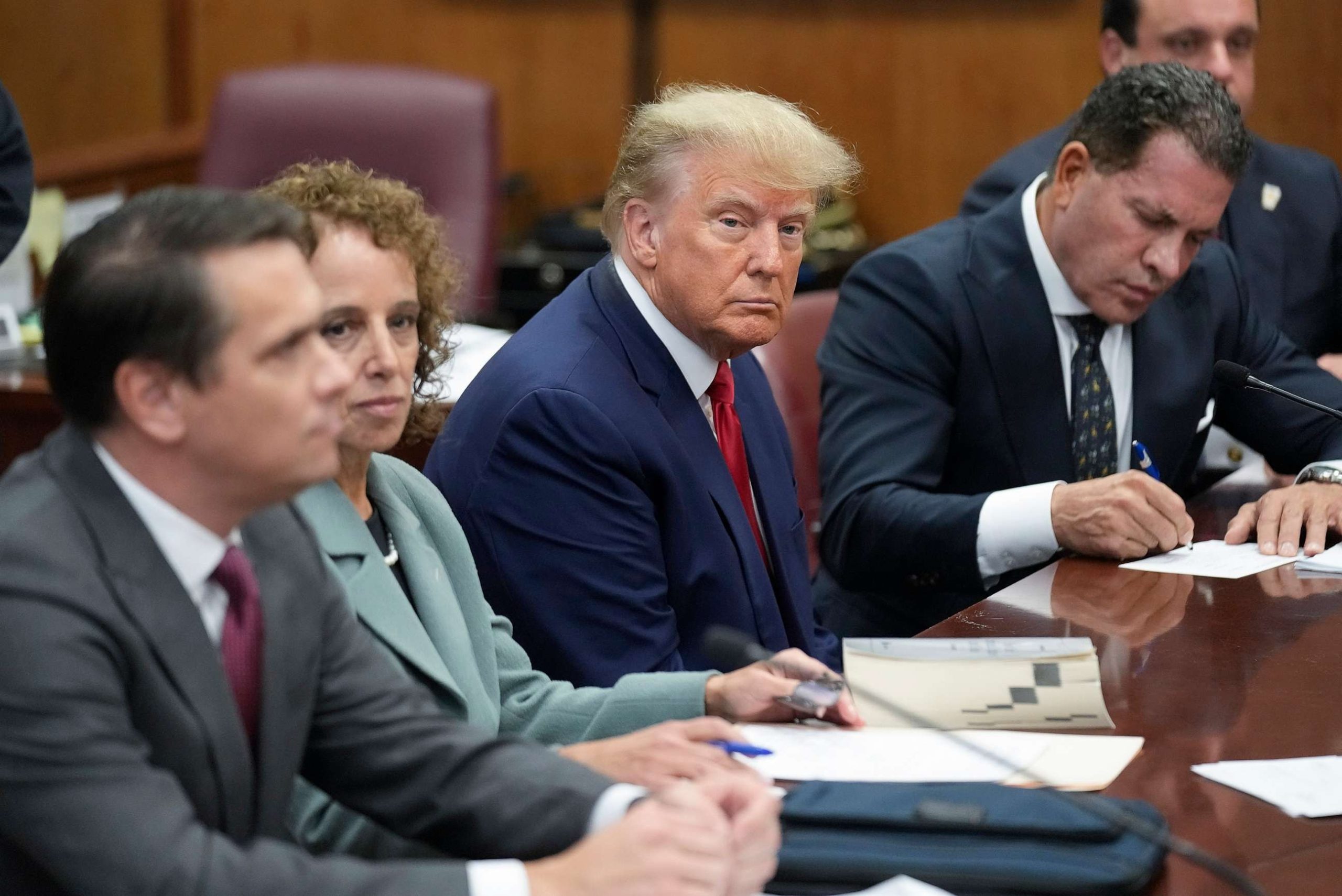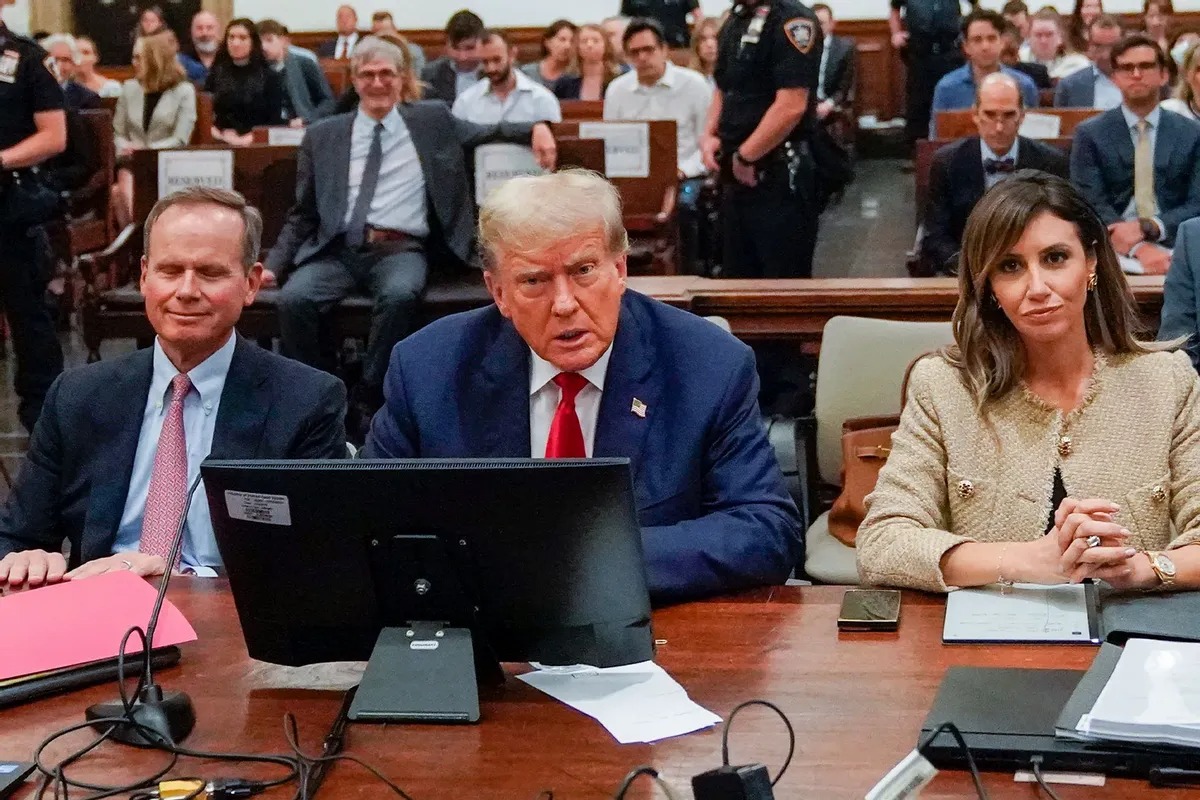The federal judge overseeing the classified documents case against former President Donald Trump is set to conduct a crucial hearing in Fort Pierce, Florida, as she deliberates on the potential postponement of the trial scheduled for May 20.
The presiding judge, Aileen Cannon, will address various unresolved issues related to the case during the hearing, with Trump expected to attend.
In response to Cannon’s request for input on the trial date, special counsel Jack Smith’s office recommended a delay to July 8, while Trump’s legal team proposed an August 12 start date.

Trump in Law Court (Credits: ABC News)
Notably, Trump’s attorneys argue for a postponement until after the November election, asserting his Sixth Amendment right to a fair trial and his First Amendment right to engage in campaign speech as a leading candidate in the 2024 election.
Both parties submitted a joint proposal for a juror questionnaire, encompassing 99 questions, but disparities exist, such as the estimated trial duration.
Smith’s office anticipates four to six weeks, while Trump’s team suggests eight to 10 weeks. Contentious questions include whether potential jurors believe the 2020 election was stolen and their voting history.
The hearing will address concerns raised by Trump about the extensive discovery process, emphasizing the need for adequate time to review evidence.
Cannon previously hinted at a potential trial delay in November, citing the substantial volume of classified and unclassified discovery materials, including 1.3 million pages of unclassified documents and 60 terabytes of closed-circuit television footage.
Trump faces 40 criminal charges, including willful retention of national defense information, false statements, conspiracy to obstruct justice, and concealing documents.
He has pleaded not guilty. Co-defendants Walt Nauta and Carlos De Oliveira have also pleaded not guilty to related charges. Nauta, a close aide to Trump, and De Oliveira, a Mar-a-Lago property manager, are accused of attempting to delete security video at the Palm Beach club.
Cannon’s decision on the trial date holds significant importance, shaping the timeline for Trump’s legal proceedings this year, as he faces trials in New York, Washington, D.C., and Fulton County, Georgia.
Trump has consistently sought to dismiss charges or extend deadlines, utilizing various legal arguments, including claims of presidential immunity and challenges to special counsel appointments.
In the New York case, jury selection is set to begin on March 25, while the Washington trial is on hold pending the Supreme Court’s consideration of Trump’s claims of presidential immunity.
The Georgia case involves a motion to disqualify Fulton County District Attorney Fani Willis, with closing arguments taking place on the same day as the Florida hearing. Trump aims to strategically navigate t























